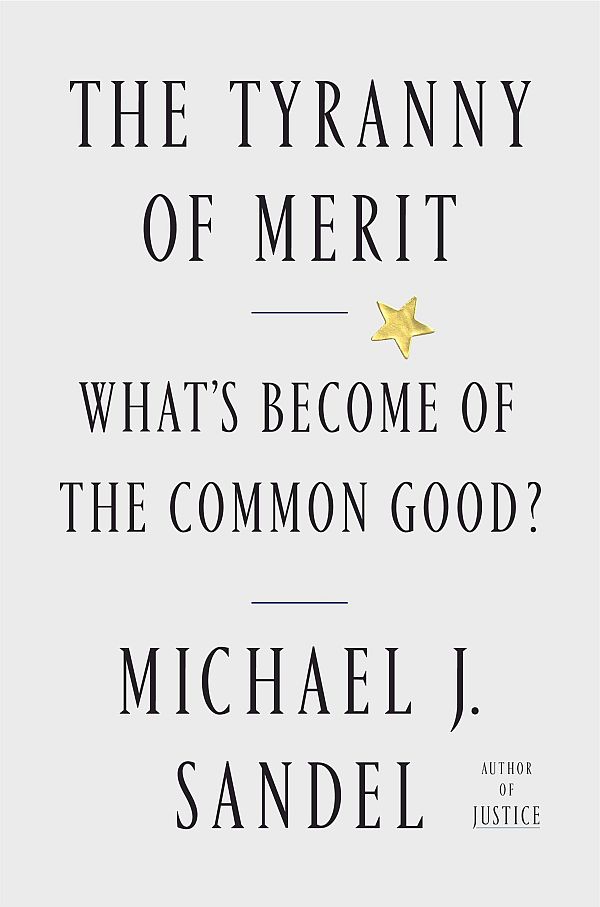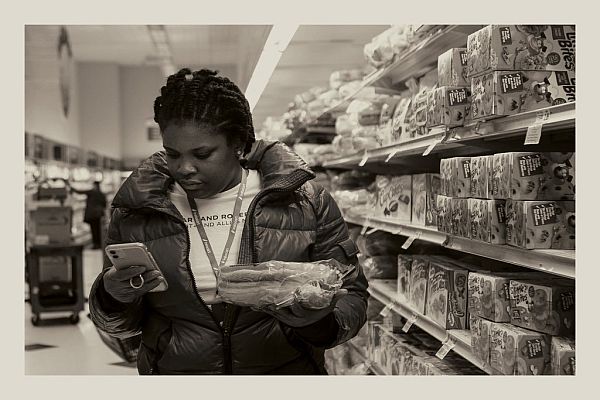Mobilizing to confront the pandemic and, eventually, to reconstruct the shattered economy, requires not only medical and economic expertise but also moral and political renewal. We need to ask a basic question that we have evaded over these last decades: What do we owe one another as citizens?
Looming
above America’s present struggles over injustice and inequality is the sense
that certain self-mythologies are beginning to evaporate. When Barack Obama was
in the White House, he often studded his speeches with a favorite pop lyric,
“You can make it if you try.” He mentioned it more than a hundred and forty
times, even though the facts of declining social mobility rendered that image
less and less convincing. In various studies, no more than eight per cent of
Americans who are born into the bottom fifth of U.S. households, as measured by
income, ever reach the top fifth; more than a third stay at the bottom.
You
write that America was “morally” unprepared for the pandemic. Was there ever a
point in this crisis when you thought, Perhaps this will galvanize us?
In the
early days of the pandemic, we often heard the reassuring slogan “We are all in
this together.” We heard it from politicians, advertisers, celebrities. The
slogan was all around us. It was inspiring in a way because it reminded us of
our shared vulnerability in the face of the virus. But I think many people felt
that the slogan rang hollow, even in the early weeks, because we knew, and felt,
and sensed that we were not truly all in this together. It soon became clear
that some of us would ride out the pandemic working from home, relatively
removed from the risks, while others—including those whose work enabled the
rest of us to work from home—had little choice but to expose themselves to the
risks that come from working in stores, and in warehouses, and delivering
goods. So it quickly became clear that we were not all in this together.
We shall
see. [Laughs.] I’m bracing for the reaction. But, all kidding aside, I think
that many of my colleagues will recognize, in their experience, many of the
problems that I raise. I should first explain what I mean by “meritocratic
hubris.” It’s the tendency of those who land on top to believe that their
success is their own doing, the measure of their merit, and, by implication,
that those who struggle, those who were left behind, must deserve their fate as
well. It’s the tendency to forget our indebtedness to family, teachers, community,
country, and the times in which we live as conditions for the success that we
enjoy. The more we believe that our success is our own doing, the harder it is
to see ourselves in other people’s shoes, the harder it is to feel a sense of
mutual responsibility for the fate of our fellow-citizens, including those who
aren’t flourishing in the new economy.
EA : In the book, you detail some practical proposals that you’d like to see introduced to confront these problems. But, in the short term, what would you like to see Joe Biden do in the next couple of months, to give life to those ideas, that you think might help?
MS : I would urge Biden to play out an instinct that he has already voiced when he speaks about the “dignity of work.” What the rhetoric of rising has missed is the lost dignity of work that a great many people spend their lives engaged in. Not only in terms of stagnant wages, but also in terms of social recognition. Honor. At the heart of the resentment of many working people is the sense that the work they do isn’t respected in the way it once was. Not only the economy but also the culture has left them behind. If he should be elected, as I hope he will be, he should put the dignity of work at the center of his Presidency, which could make life better for everyone, not only the well credentialled. That could be the starting point for moving beyond the tyranny of merit, toward a politics of the common good.
A Political Philosopher on Why Democrats Should Think Differently About Merit. By Evan Osnos . The New Yorker , September 14, 2020.
Michael J. Sandel, the Harvard political philosopher, has a lot to answer for. Some armchair psychologists think the reason I turned away from journalism to become a free-school evangelist in 2009 is that I wanted to make my late father proud. He helped set up the Open University, among other things. No doubt there’s something in that, but it was also testimony to the influence of the charismatic Harvard professor, under whom I studied for a year. Sandel is a sort of secular Quaker and was always urging his students to eschew the temptations of worldly success and embrace the common good. That was the path to true happiness.
So thanks a lot, professor. I blame you for that disastrous wrong turning. Admittedly, I enjoyed co-founding four schools and will defend Michael Gove’s education reforms to the hilt. But my nine-year stint as a do-gooderended in public humiliation when Theresa May appointed me to the board of the Office for Students. The offence archaeologists went to work, dug up some sophomoric things I’d said years ago, and I had to resign from five positions, including my full-time job running an education charity. It was as if the custodians of the common good were saying: ‘Get back in your lane, Sunny Jim.’
All of which is a roundabout way of saying that Sandel’s new book, The Tyranny of Merit, should come with a health warning. It’s the same message he drummed into me 30 years ago — show some humility in the face of your good fortune, think of others before yourself, try to be of service — but yoked to a critique of meritocracy. His central point, repeated ad infinitum, is that believing your status is a reflection of your true worth, rather than a function of who your parents were and what school you went to, turns the successful into egocentric monsters and the unsuccessful into aggrieved malcontents. That way, social discord lies. It’s the same critique my father made of meritocracy when he coined the word in 1958 and Sandel sees the populist uprisings of 2016, with Brexit and Trump triumphing at the ballot box, as a foretaste of the bloody revolution my father predicted would occur in 2034.
Sandel has some killer stats to flesh out his thesis. In real terms, the median income for working-age American men, about $36,000, is less than it was four decades ago. Today, the richest 1 per cent of Americans make more money than the bottom half combined and those same plutocrats send more students to Princeton and Yale than the entire bottom 60 per cent. Of those born in the lowest fifth of the income scale, only about one in 20 will make it into the top quintile; most won’t even get as far as the middle class. No wonder the sans-culottes are getting restless.
Having diagnosed the problem, Sandel proposes a typically utopian solution: society should redistribute recognition and esteem so that ‘those who do not achieve great wealth or prestigious positions’ can ‘live lives of decency and dignity’. But how are you going to achieve that, given the low wages and precarious employment of the unlucky ones? That sounds less like a way of forestalling the revolution and more like a rose-tinted description of its aftermath. David Goodhart, who’s written a book on the same theme called Head Hand Heart, calls this ‘status communism’.
Goodhart’s book is less idealistic. He acknowledges that there are some benefits to society in creating incentives for those most able to work hard, but calls for a rebalancing of rewards so workers by hand get a little more and workers by brain a little less. For Sandel, the dominance of the meritocratic elite and the relegation of those outside it to second class citizens, their noses permanently pressed up against the glass, is an existential threat. Goodhart’s concerns are less dramatic. He worries about the imminent replacement of mid-level managerial jobs by intelligent machines, as well as the recruitment crisis in nursing and adult social care. How are we going to persuade fewer people to go to university and more people to acquire useful vocational skills? Some of his solutions are quite imaginative: subsidies for pubs, free relationship counselling, and more male primary-school teachers.
The great discovery I made during my midlife career change was that people who throw themselves into good works are actually esteemed less than scurrilous hacks. I daresay Sandel is right and philanthropy is good for the soul. But I’ll have to repair my ego before giving it another go.
Being a do-gooder did me no good at all. By Toby Young. The Spectator , September 10, 2020











No comments:
Post a Comment